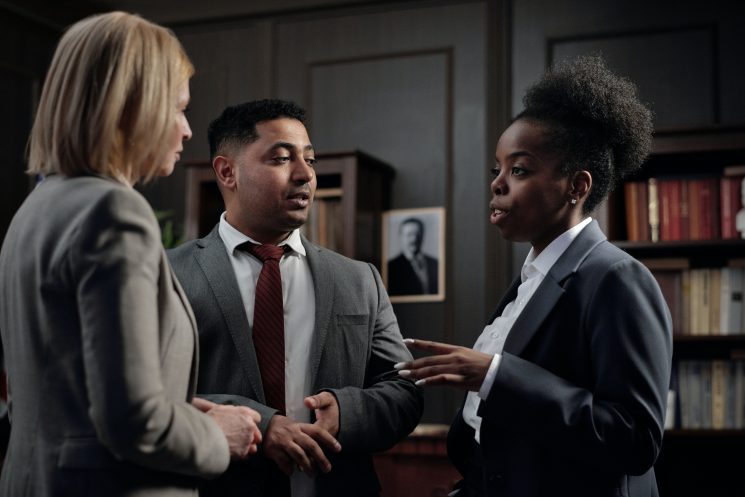When it comes to legal representation, many of us would think of the word ‘lawyer’ before ‘solicitor.’ However, here in the UK, the word ‘lawyer’ is an umbrella term, with no defined meaning and it encompasses all legal professionals, including solicitors.
Who is a solicitor and what do they do?
Solicitors are qualified legal professionals who are able to provide specialist legal advice. Solicitors are instructed by their clients, and they are then responsible for advising their clients, and representing and defending the client’s legal interests.
Solicitors work closely with their clients and are often an individual’s first point of contact in the legal system. Solicitors can work in private practices, in-house for an organisation or in civil service for the UK government or court service.
Solicitors work on cases involving civil law or criminal law and have areas of expertise, such as family law, personal injury, wills and probate or employment law.
What are the main responsibilities of a solicitor?
Solicitors undertake both contentious legal work, which is where there is a dispute of some kind between multiple parties (for example, a court case or tribunal) and non-contentious work, such as writing a will.
A solicitor’s main responsibilities are to uphold the law and to act in the best legal interests of their client. In order to do this, their day-to-day work might involve anything from drafting a will or other legal document, through to researching relevant legislation, to representing a client in court.
Most common types of solicitor negligence
Unfortunately, as in any profession, solicitors do make mistakes, and the repercussions of these can have serious consequences. These are some of the most common types of solicitor negligence.
- Breaching confidentiality
- Failure to properly explain the law or legal terms to a client
- Conflict of interest issues (this might happen if your solicitor is also representing a third party who you are in dispute with, for example.)
- Failure to advise fully
- Missing a court deadline
- In the case of couples, taking instructions from just one individual when the matter relates to both your legal interests (an example of this might be allowing one partner in a marriage to remortgage a home that both partners own.)
These mistakes are usually due to processes and procedures, rather than because a solicitor doesn’t know or work within the law. It may be a result of inaccurate record-keeping or over-reliance on junior or untrained staff but even a small mistake can be disastrous for a client.
If a client receives incorrect advice from a solicitor, or a solicitor fails to protect a client’s legal interests, then they will be entitled to make professional negligence solicitor claims.
Where to find the best solicitors for you
If you have a legal matter that requires a solicitor, it’s important to find the right solicitor for your needs. You’ll want to ensure that the solicitor is properly qualified in the field of law you require representation in and that they are experienced in handling cases like yours. Ask for word of mouth recommendations from people you trust or seek out reviews online before instructing a solicitor.





